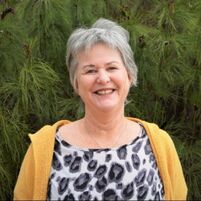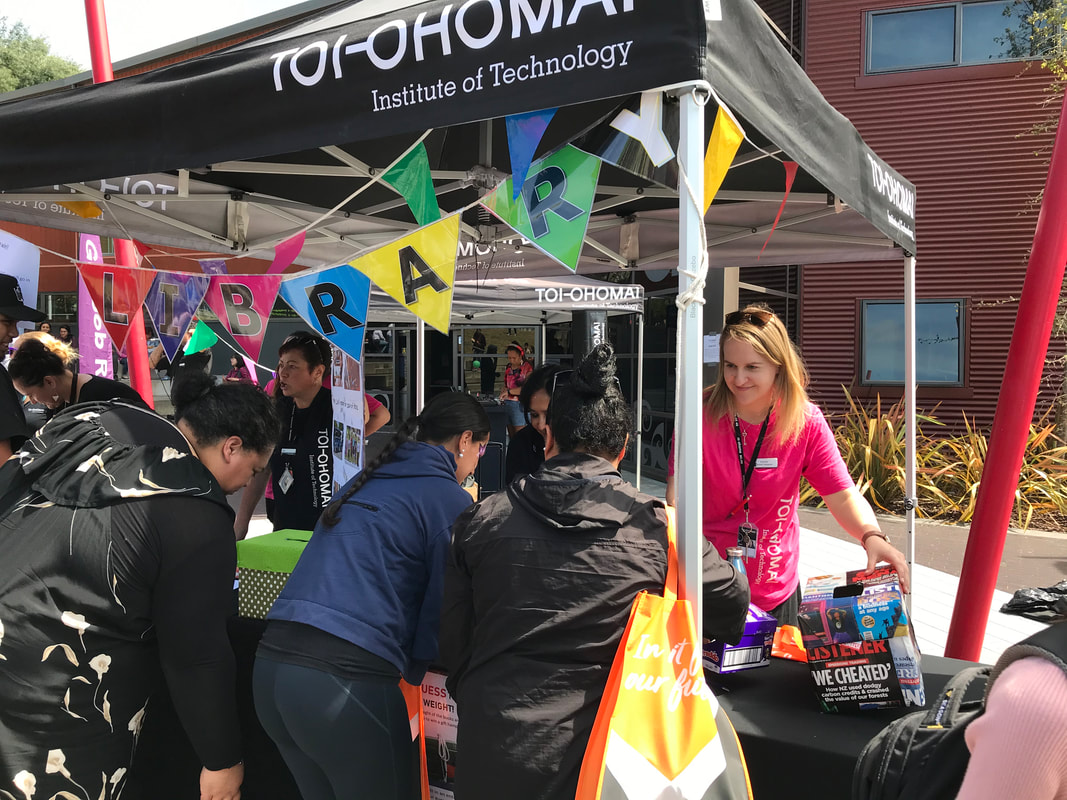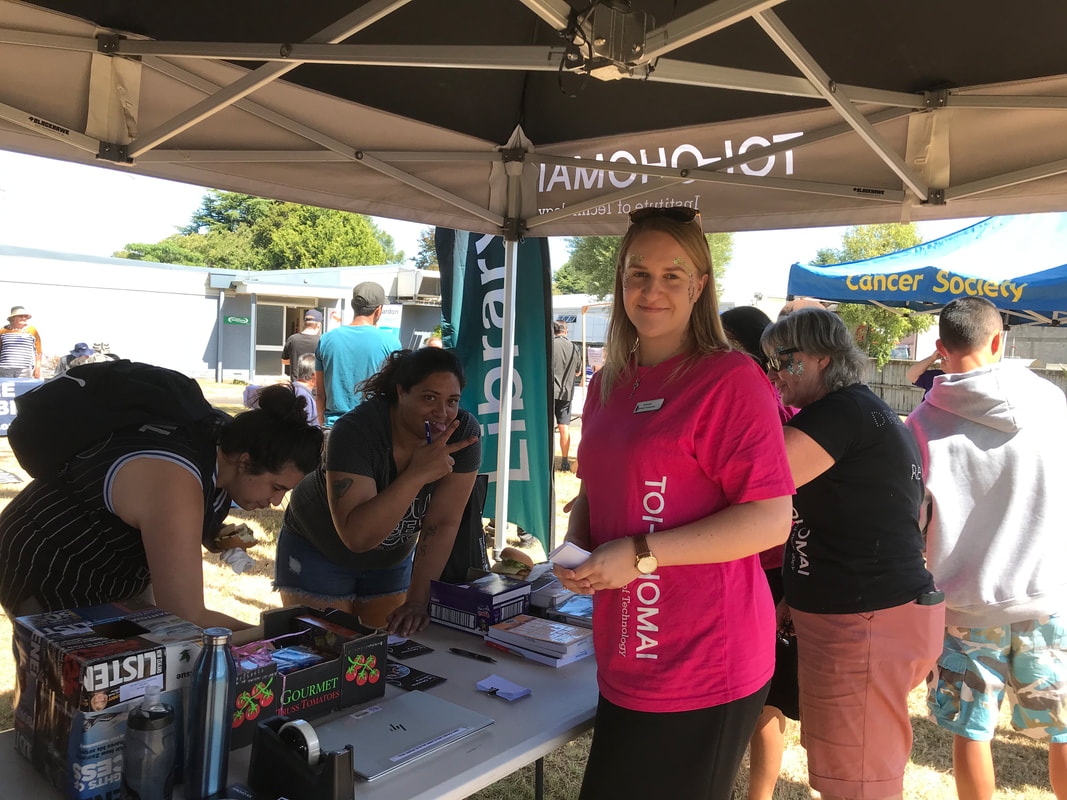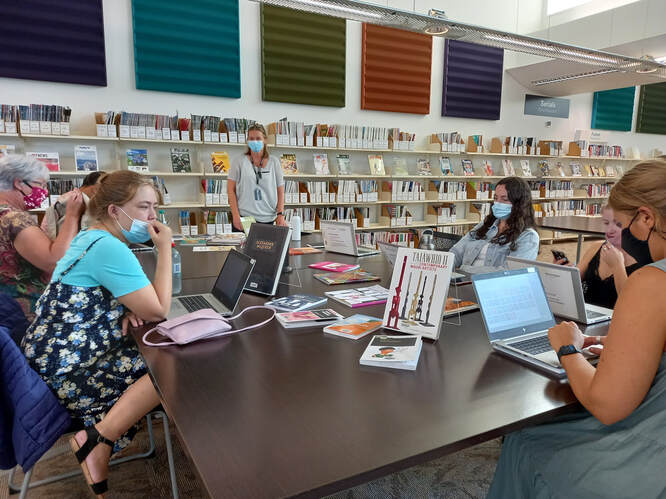Career profile: Lee Rowe

TELL US ABOUT YOURSELF
I was born in Ōpunake and now live in Tauranga Moana. I’m Pākehā, with Celtic and English ancestry. My career began as a library assistant at Dan Long Memorial Library, Public Service Association. I’ve worked at Canterbury University, Tauranga City Libraries, Western Bay Libraries, and Bay of Plenty Polytechnic. Along the way, I ended up with an MLIS and a post-grad certificate in management.
My current role is Knowledge and Information Services Manager at Te Pūkenga, Toi Ohomai, which provides vocational education across the Bay of Plenty and South Waikato regions.
I was born in Ōpunake and now live in Tauranga Moana. I’m Pākehā, with Celtic and English ancestry. My career began as a library assistant at Dan Long Memorial Library, Public Service Association. I’ve worked at Canterbury University, Tauranga City Libraries, Western Bay Libraries, and Bay of Plenty Polytechnic. Along the way, I ended up with an MLIS and a post-grad certificate in management.
My current role is Knowledge and Information Services Manager at Te Pūkenga, Toi Ohomai, which provides vocational education across the Bay of Plenty and South Waikato regions.
AT DOES A TYPICAL DAY LOOK LIKE IN YOUR ROLE?
There’s likely to be a catch-up with one of my team to share updates and talk about any challenges or opportunities and what support might be helpful.
There is usually work relating to service evaluation. For instance, we’ve just completed “You-Said, We-Did” feedback on improvements made in response to student survey results.
There will inevitably be tasks related to finance. Either approving purchases, preparing a budget, reviewing subscriptions, or negotiating with vendors.
I might have a meeting or an informal chat with staff in the wider student services team, around ensuring that academic and personal support is delivered collaboratively and holistically.
Advocacy has always been a big part of my role. Writing a persuasive memo is often on the daily to-do list. The most recent is advocating for (and getting!) improved disability access at one of our libraries.
With the development of Te Pūkenga, we are looking at aligning library resources with new and unified qualifications, and I’m working with colleagues across the network to ensure that the full value of libraries is recognized. I will take a walk around campus and see what’s happening. A perk of vocational education is checking out what the students have been creating, and the free coffees made by our hospitality students!
There’s likely to be a catch-up with one of my team to share updates and talk about any challenges or opportunities and what support might be helpful.
There is usually work relating to service evaluation. For instance, we’ve just completed “You-Said, We-Did” feedback on improvements made in response to student survey results.
There will inevitably be tasks related to finance. Either approving purchases, preparing a budget, reviewing subscriptions, or negotiating with vendors.
I might have a meeting or an informal chat with staff in the wider student services team, around ensuring that academic and personal support is delivered collaboratively and holistically.
Advocacy has always been a big part of my role. Writing a persuasive memo is often on the daily to-do list. The most recent is advocating for (and getting!) improved disability access at one of our libraries.
With the development of Te Pūkenga, we are looking at aligning library resources with new and unified qualifications, and I’m working with colleagues across the network to ensure that the full value of libraries is recognized. I will take a walk around campus and see what’s happening. A perk of vocational education is checking out what the students have been creating, and the free coffees made by our hospitality students!
WE ALL HAD AN IDEA OF WHAT A LIBRARIAN IS OR DOES WHEN WE WERE YOUNGER, WHAT WAS YOURS?
I’ve heard it said that a child‘s interests at seven years of age are an indicator of their future work. Whether or not that’s true, my world then was books and stories. I loved visits to the school and public library and listening to my grandmother’s train stories. I created my own magazines and enjoyed learning how to critique advertisements and news articles at school. The beginning of a life-long interest in libraries, magazines and information literacy!
ANY CAREER HIGHLIGHTS YOU’D LIKE TO SHARE WITH US?
Being a children’s librarian for eight years was fantastic. It was exciting to be creative, develop services and work with young people, whānau and schools.
Being involved with LIANZA is an ongoing highlight and receiving a LIANZA Associateship was a proud moment. I’ve been chair and member of LIANZA Te Whakakitenga aa Kaimai, on the Credentials Committee, and currently a newbie member of the LIANZA Standing Committee on Copyright.
My current role is a career highlight too. Our libraries and librarians are such a vital support for learners. I’m also proud we implemented the open-source Koha library system, with support and data storage in Aotearoa.
Another highlight has been seeing so many staff grow in their careers - taking the skills they have learned and making a difference wherever they go. And although the last few years during the pandemic have been the most difficult of my career, it has also been incredible to see librarians here and around the world doing what they do best, cooperating and adapting to support the wellbeing of their communities.
I’ve heard it said that a child‘s interests at seven years of age are an indicator of their future work. Whether or not that’s true, my world then was books and stories. I loved visits to the school and public library and listening to my grandmother’s train stories. I created my own magazines and enjoyed learning how to critique advertisements and news articles at school. The beginning of a life-long interest in libraries, magazines and information literacy!
ANY CAREER HIGHLIGHTS YOU’D LIKE TO SHARE WITH US?
Being a children’s librarian for eight years was fantastic. It was exciting to be creative, develop services and work with young people, whānau and schools.
Being involved with LIANZA is an ongoing highlight and receiving a LIANZA Associateship was a proud moment. I’ve been chair and member of LIANZA Te Whakakitenga aa Kaimai, on the Credentials Committee, and currently a newbie member of the LIANZA Standing Committee on Copyright.
My current role is a career highlight too. Our libraries and librarians are such a vital support for learners. I’m also proud we implemented the open-source Koha library system, with support and data storage in Aotearoa.
Another highlight has been seeing so many staff grow in their careers - taking the skills they have learned and making a difference wherever they go. And although the last few years during the pandemic have been the most difficult of my career, it has also been incredible to see librarians here and around the world doing what they do best, cooperating and adapting to support the wellbeing of their communities.
DO YOU HAVE ANY ADVICE FOR EARLY CAREER LIBRARY AND INFORMATION PROFESSIONALS?
Join your regional LIANZA, Te Rōpū Whakahau or SLANZA committee and get involved in their activities. If you are interested in a job apply for it, even though you may not have all of the ‘essential’ requirements. Often these requirements are not truly ‘essential’ for a new employee but can be learned on the job. Once in the job, get involved in activities in and beyond the library that fit your values, you never know where they may lead you. Develop a network of inspiring people to follow and learn from. If you are Pākehā, listen carefully to the voices of Māori and other indigenous peoples around the world. And most importantly, look after your health and wellbeing.
WHO OR WHAT WOULD YOU SAY IS ONE OF THE BIGGEST INFLUENCES ON YOUR CAREER TO DATE?
I have been lucky to have worked with many amazing people. There are just far too many to mention. I will mention the late Sabine Weber-Beard who influenced me and so many others with her unique mix of creativity, generosity, openness, and eagerness to seize the day.
IF YOU COULD RECOMMEND ONLY ONE RESOURCE TO SOMEONE, WHAT WOULD IT BE?
Your local iwi radio station. Great music and real local news and information! Available on the Wharekōrero.nz app.
HOW WOULD YOU LIKE TO SEE LIBRARIES AND INFORMATION SERVICES LOOK IN THE FUTURE?
In my own sector, vocational education is undergoing a period of radical change. The outcome I’d like to see is tangible evidence of equitable and accessible education. Essential to this will be well-resourced library and learning support services and spaces, co-designed with learners.
I’m not the right person to envision a future for libraries (public and educational). This belongs in the hands of tangata whenua. I’m a Pākehā settler colonist who has grown up feeling comfortable visiting and working in libraries. Our library systems and structures in Aotearoa are still Euro-centric, and based on settler colonist principles and values, which are inherently racist. Although things are changing, there’s still a great deal of work to be done to dismantle these systems and structures. There is discomfort in acknowledging the impact of colonization and racism, my role in it, and that I still have blind spots. However, any discomfort I feel pales in comparison to the harm caused to Māori, as well as to Pasifika and Asian New Zealanders. So, if there is one thing I’d like to see, it is continuing change in this area and a lot more Māori staff in library leadership positions.
Join your regional LIANZA, Te Rōpū Whakahau or SLANZA committee and get involved in their activities. If you are interested in a job apply for it, even though you may not have all of the ‘essential’ requirements. Often these requirements are not truly ‘essential’ for a new employee but can be learned on the job. Once in the job, get involved in activities in and beyond the library that fit your values, you never know where they may lead you. Develop a network of inspiring people to follow and learn from. If you are Pākehā, listen carefully to the voices of Māori and other indigenous peoples around the world. And most importantly, look after your health and wellbeing.
WHO OR WHAT WOULD YOU SAY IS ONE OF THE BIGGEST INFLUENCES ON YOUR CAREER TO DATE?
I have been lucky to have worked with many amazing people. There are just far too many to mention. I will mention the late Sabine Weber-Beard who influenced me and so many others with her unique mix of creativity, generosity, openness, and eagerness to seize the day.
IF YOU COULD RECOMMEND ONLY ONE RESOURCE TO SOMEONE, WHAT WOULD IT BE?
Your local iwi radio station. Great music and real local news and information! Available on the Wharekōrero.nz app.
HOW WOULD YOU LIKE TO SEE LIBRARIES AND INFORMATION SERVICES LOOK IN THE FUTURE?
In my own sector, vocational education is undergoing a period of radical change. The outcome I’d like to see is tangible evidence of equitable and accessible education. Essential to this will be well-resourced library and learning support services and spaces, co-designed with learners.
I’m not the right person to envision a future for libraries (public and educational). This belongs in the hands of tangata whenua. I’m a Pākehā settler colonist who has grown up feeling comfortable visiting and working in libraries. Our library systems and structures in Aotearoa are still Euro-centric, and based on settler colonist principles and values, which are inherently racist. Although things are changing, there’s still a great deal of work to be done to dismantle these systems and structures. There is discomfort in acknowledging the impact of colonization and racism, my role in it, and that I still have blind spots. However, any discomfort I feel pales in comparison to the harm caused to Māori, as well as to Pasifika and Asian New Zealanders. So, if there is one thing I’d like to see, it is continuing change in this area and a lot more Māori staff in library leadership positions.



